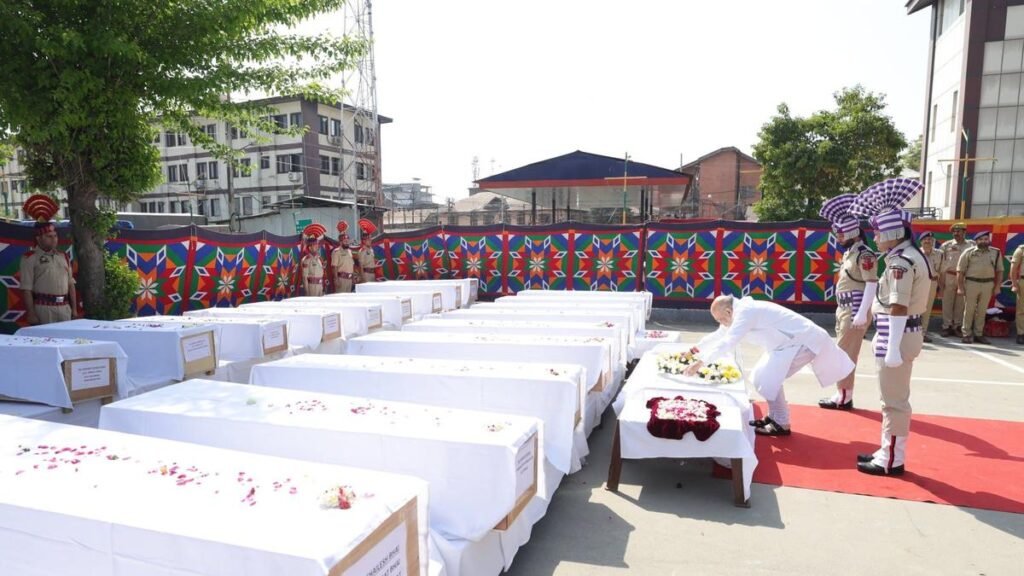Srinagar, June 25, 2025 – In a significant move to revive tourism in Jammu and Kashmir following the devastating April 22 terror attack in Pahalgam, the Central Government has announced a high-level review meeting to be held in the scenic town on July 7 and 8. The Jammu and Kashmir government is also planning to construct a memorial within the next six months to honor the 26 victims, mostly tourists, killed in the Baisaran Valley attack, which brought the region’s tourism industry to a standstill.
The meeting, organized by the Ministry of Culture and Tourism, will see participation from tourism secretaries of all states, who will present proposals to develop globally recognized tourist destinations in their respective regions. This initiative aims to restore confidence in Kashmir’s tourism sector, a critical contributor to the local economy, accounting for 7-8% of Jammu and Kashmir’s GDP.
The April 22 attack in Pahalgam’s Baisaran Valley, one of the deadliest since the 2019 Pulwama attack, led to widespread cancellations, with 62% of Indian families cancelling trips to Kashmir and an 80% drop in tourist arrivals at Dal Lake. Hotel occupancy plummeted, and over 15,000 flights to Srinagar were cancelled, severely impacting local livelihoods. In response, the J&K government closed 48 of 87 tourist destinations across the Kashmir Valley for security reasons, but 16 have since reopened, including Betaab Valley and parks near Pahalgam market.
Union Tourism Minister Gajendra Singh Shekhawat, who recently visited the attack site, praised the resilience of Kashmiris and assured robust security measures for the upcoming Amarnath Yatra and tourists visiting the Valley. Chief Minister Omar Abdullah, who held a historic cabinet meeting in Pahalgam, emphasized that such actions send a clear message that violence will not deter the region’s progress. “The enemies of peace will never dictate our resolve. Jammu and Kashmir stands firm, strong, and unafraid,” Abdullah stated.
The planned memorial, to be built near the attack site, is envisioned as a “symbol of resilience” to honor the victims and reassure tourists. The J&K administration has identified a spot and is designing a structure that captures both solemnity and strength.
Efforts to revive tourism are showing early signs of success. Recent reports indicate a gradual return of visitors, with Pahalgam seeing crowded streets and local businesses cautiously optimistic. The Centre is also revisiting financial clearances for two key tunnel projects, Sudhmahadev-Dranga and Singhpora-Vailoo, to improve connectivity and support year-round tourism. Additionally, plans are underway to develop six new tourist destinations in J&K and add 5,000 hotel rooms in Pahalgam to accommodate growing visitor numbers.
Lieutenant Governor Manoj Sinha, who announced the phased reopening of tourist spots, emphasized a responsible approach to restoring normalcy. “Following a detailed security assessment, we are now in a position to welcome visitors back, gradually and responsibly,” he said.
The tourism industry, described as the “lifeline of Kashmir,” is witnessing renewed interest, with tourists from Punjab, Rajasthan, and even international groups from Poland returning to the Valley. Local stakeholders, including hoteliers and tour operators, have called for financial relief measures, such as loan interest waivers, to aid recovery.
As Jammu and Kashmir works to rebuild its tourism sector, the upcoming meeting and the memorial project underscore a dual commitment to economic revival and honoring those lost to terror.



